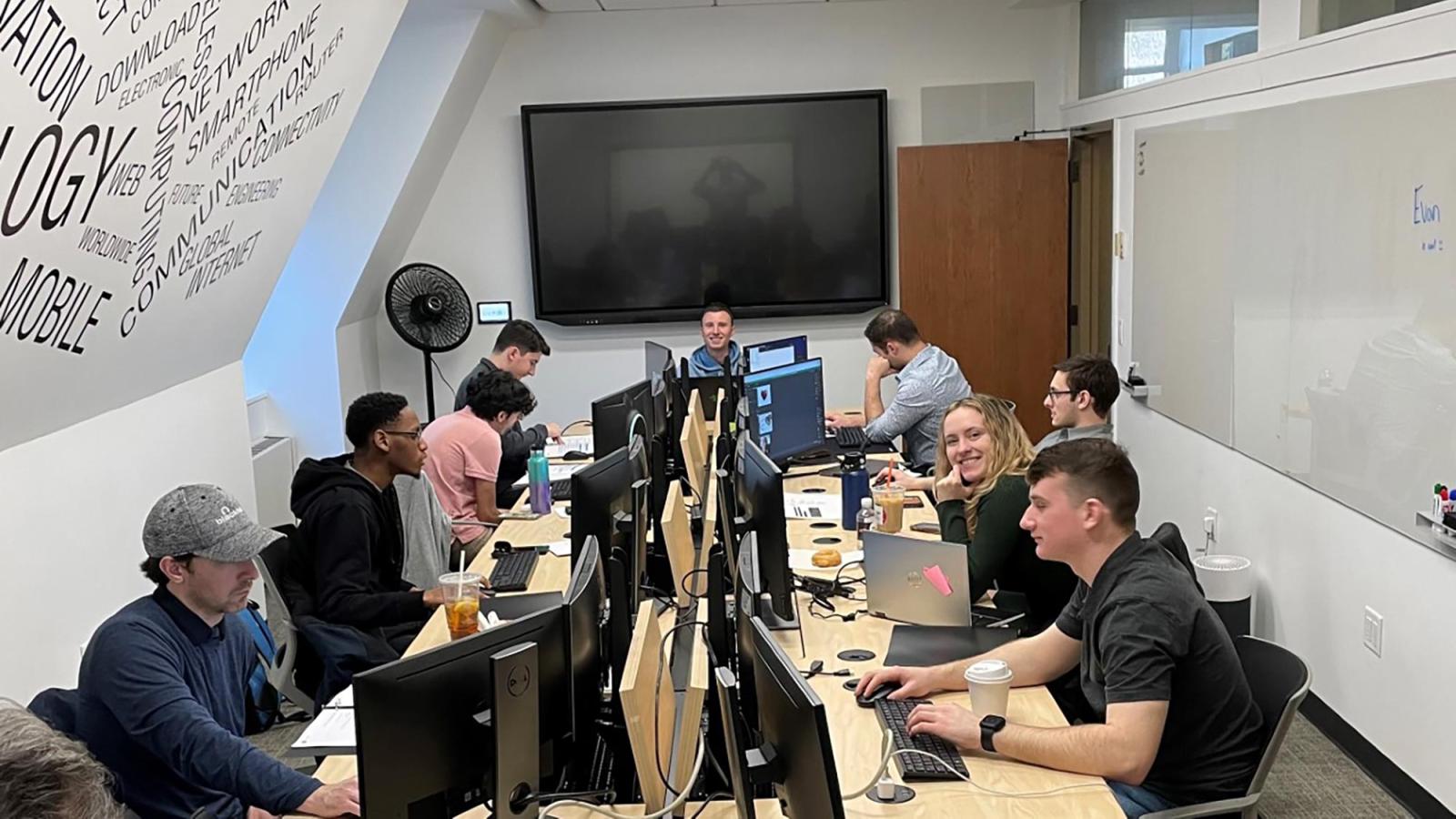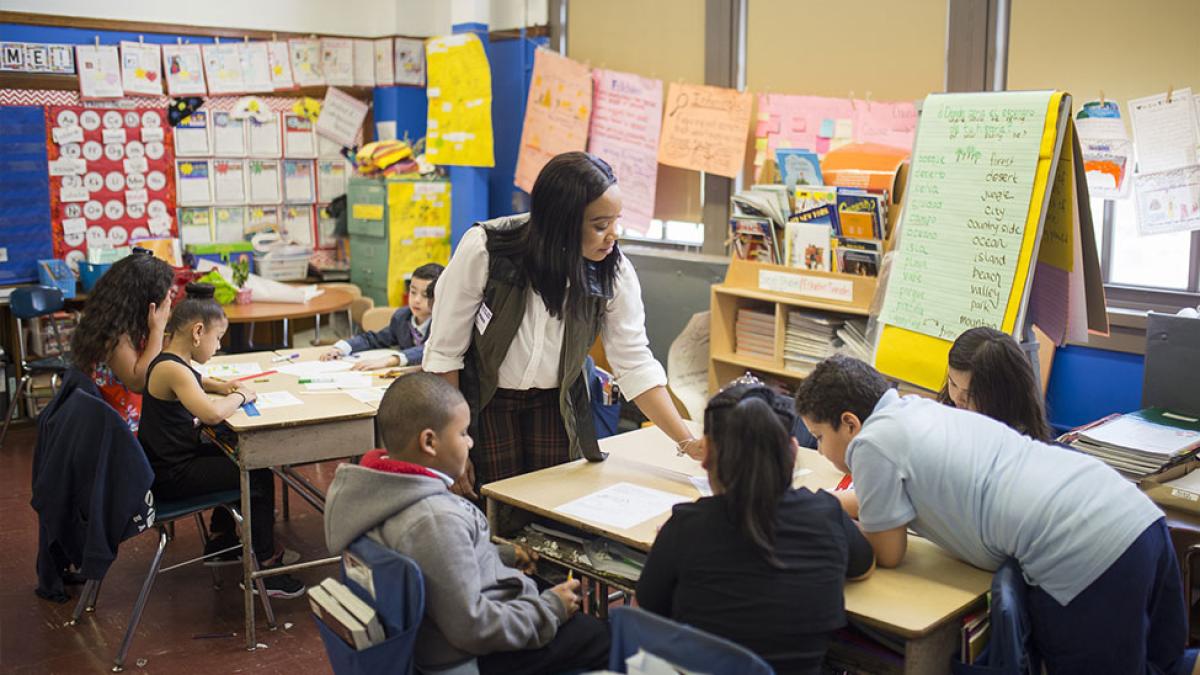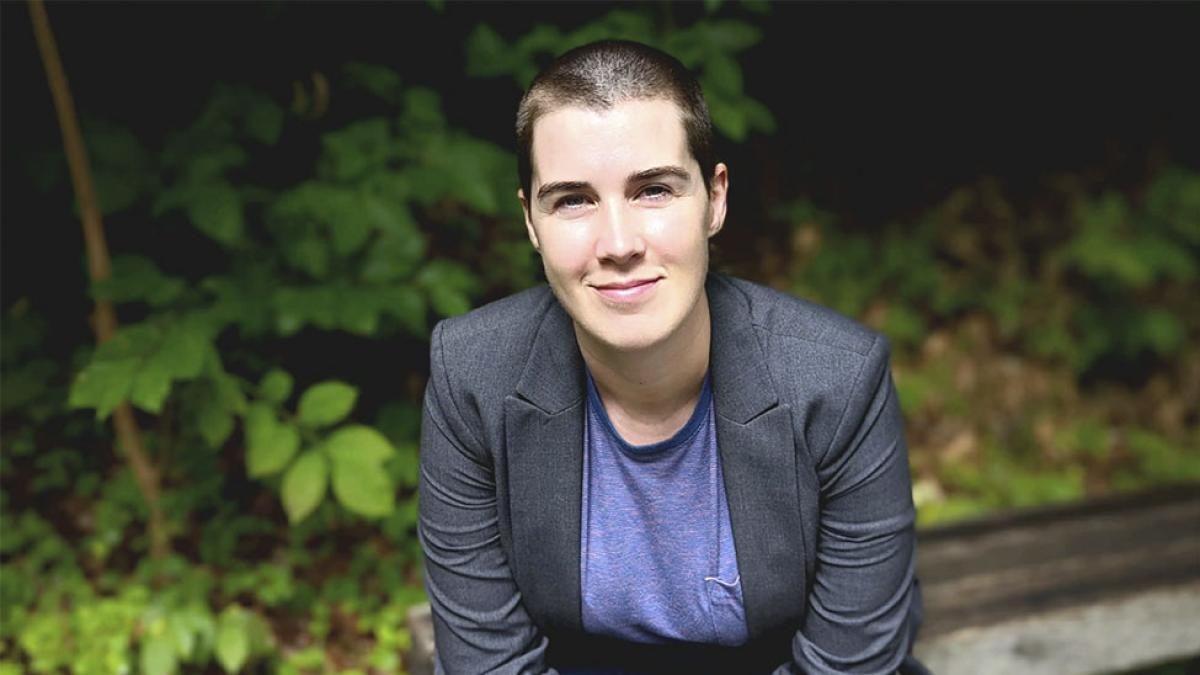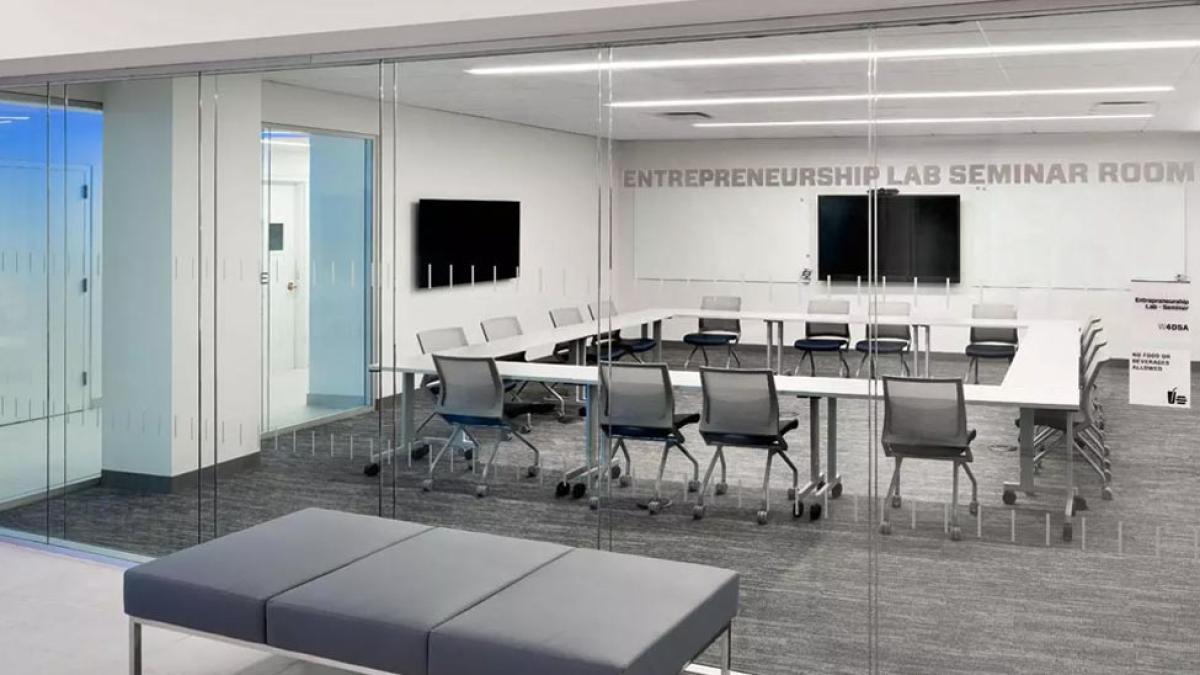Through interdisciplinary collaboration, the School of Education and Dyson's Film and Screen Studies departments are helping a major school district in Florida tackle the challenges of today’s teacher shortage head-on.
Unlocking Students' Cyber Potential

Over the past several years, Pace’s Seidenberg School of Computer Science and Information Systems has established itself as a national leader in cybersecurity education. You don’t need to just take our word for it; the United States Department of Homeland Security (DHS) and National Security Agency (NSA) also agree, having designated Pace a National Center of Academic Excellence in Cyber Defense Education (CAE-CDE). Furthermore, the National Science Foundation and the United States Department of Defense have collectively awarded Pace millions of dollars in grants and scholarships to further develop Pace’s top talent.
So again, not to brag—when it comes to cybersecurity, we’re kind of a big deal.
What’s the secret to all of this success? It of course starts with the wonderful infrastructure at Seidenberg, from state-of-the-art labs to the accomplished and dedicated faculty. Yet, it is our students—always on the lookout to further improve and develop their skills—who truly enable Seidenberg to stand out.
One example of Seidenberg’s culture of continued excellence is its participation—and continued success—in the National Cyber League (NCL). The league consists of a biannual intercollegiate competition that tests students’ cybersecurity skills through a series of challenges. Unsurprisingly, Pace has consistently outperformed the competition. In Fall 2021, the one of the participating Pace teams placed 7 out of 920 teams; and in Fall 2022, Pace placed 27 nationally among over 7,500 students from 470 colleges and universities.
Furthermore, several Seidenberg students, including computer science major Andrew Iadevaia ’23, placed in the 99th percentile, outperforming nearly all of the other 6,675 students who participated.
“Coming to Pace, I knew very little cybersecurity-wise,” said Andrew. “I went to the first town hall meeting, fall of freshman year, I met Kyle Hanson—who had just recently graduated—and he encouraged me to join NCL. From there I got hooked on it. I went from wanting to be a software engineer writing code, to ‘I want to solve challenges and be challenged.’”
“Even though it’s a competition, it’s a big support group where everyone is really just helping each other out
Andrew’s enthusiasm regarding the competition is echoed by fellow NCL Pace team members. Nora Broyles ’24, a double major in computer science and mathematics with a minor in IT, was a new Pace transfer student when she heard about the competition through her scholarship and joined the team.
“I had heard about the competition, but didn’t join until I transferred to Pace,” said Nora. “It was definitely a positive experience.”
Another competitor, Joseph Paradiso ’24 was also encouraged by older students to enter the NCL after joining the cybersecurity club.
“I didn’t know much coming into it, and I’ve learned a lot. The club guides you in terms of starting out,” said Joseph. “I always had an interest in cybersecurity but doing the league has definitely put me more on the cybersecurity track.”
Each NCL competition, held once in the fall and once in the spring, consists of both individual and team elements. The individual element, which takes place in a 48-hour window over a single weekend, calls upon students to solve as many challenges as possible, and participants can track their progress via a virtual leaderboard. While the team members enjoyed the individual component—and find that it truly tests your abilities and skills under pressure—it is the Pace team component, held over the following weekend, that they find to be the most rewarding.
“The team component is my favorite part—that Saturday, we typically book a room in Seidenberg and the NYC Campus will come to Pleasantville for the day, we’ll stay there working and people bring donuts and pizza,” says Andrew. “It’s a lot of fun, we joke around but we also get to learn new things from each other.”
“Something that surprised me was how supportive everyone is,” added Joseph. “Even though it’s a competition, it’s a big support group where everyone is really just helping each other out.”
The Pace team—which consisted of seventeen students—was led by faculty coach Andreea Cotoranu, who ensures everything regarding the competition runs smoothly in order to put students in the best position to succeed.
“My role as the coach is to connect students with opportunities in the field, and further to promote the students,” notes Cotoranu. “at the cybersecurity program level, we wanted to empower students to advance in the NCL competition, and those students teach the newer students. We want to turn training into a student-driven event.”
As an educator, Cotoranu finds the NCL and related extracurriculars an essential component of a cybersecurity education. While classroom learning is of course vital, students who go the extra mile and take advantage of the many opportunities Seidenberg offers outside of the classroom are able to maximize both their learning and their potential.
“Competitions such as NCL are also important for us as educators. They provide a context for students to practice with their skills in exercises that are fun and collaborative. The structure and motivation the competition offers is very helpful for students; and it’s especially a great opportunity to connect other like-minded students,” notes Cotoranu. “Additionally, it gives students a way to demonstrate their technical skills and to speak to employers about what they do, and how they learn.”
Nora, whose specialization is on the math side, echoed that the competition is a great way to develop a more well-rounded skill set, which can be invaluable when looking to build technical and professional expertise—and stand out amidst a pile of resumes.
“It helps to diversify your skill set because it’s such a broad competition,” says Nora. “It shows willingness to learn outside of your respective discipline.”
All in all, Pace’s success in the National Cyber League is a testament to Seidenberg’s commitment to providing students with top notch experiential learning opportunities; and empowering our talented students do the rest.
“I came here not knowing a single thing about cybersecurity,” says Andrew. “I was able to build my skills up. Any extracurricular activities like this, I recommend doing. They’ll expand on things that aren’t taught in the classroom that could be very beneficial.”
Connect with the Cybersecurity Club
To learn more or get involved with the team, connect with the Cybersecurity Club on Discord (BergCyberSec server, visit our Instagram page @bergcybersec, or reach out to Professor Joe Acampora.
For information about Pace's cybersecurity programs and scholarship opportunities, visit the Cybersecurity Education and Research Lab.
More from Pace
Director of Communications and Strategic Operations at Seidenberg; executive and life coach for LGBTQ+ leaders; INvolve 2022 OUTstanding LGBT+ Future Leader; and NASA diversity, equity, and inclusion panelist. Katie Todd has been busy ever since they left Scotland and came to Pace and they show no signs of stopping. Get to know this Pace powerhouse.
The Pace Entrepreneurship Studio supports new startups, from ideation to funding—from conception to operation. Our mission is to teach you the "how" and to support the "what"—providing students and alumni with a complete blueprint for establishing successful businesses.


